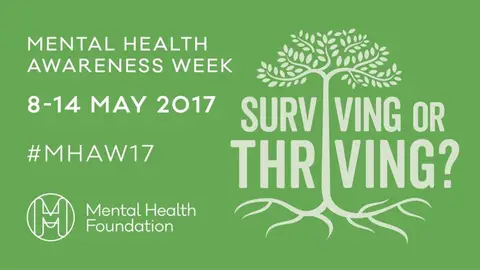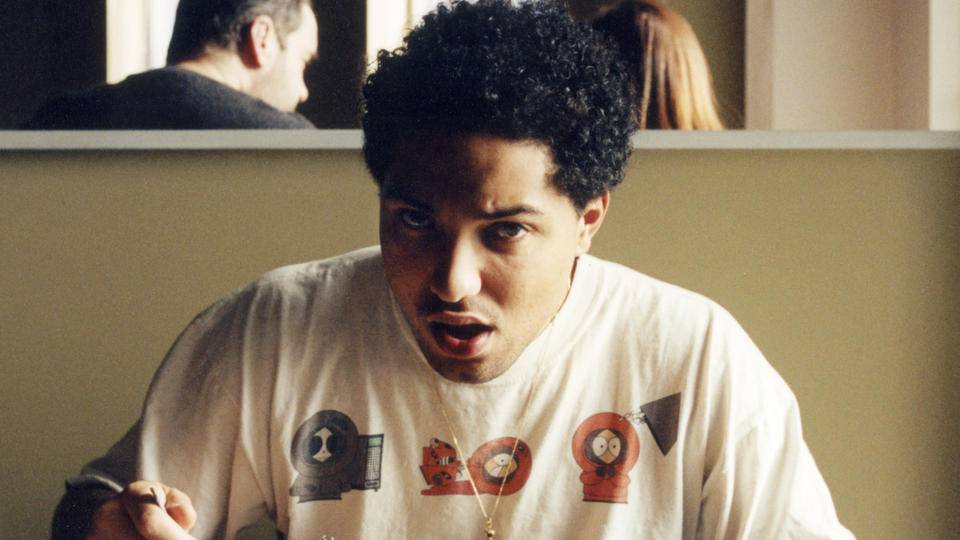14 Things You Need To Know About Schizophrenia

Schizophrenia may be one of the most demonised mental illnesses, perhaps because its symptoms are most at odds with how people usually think and behave. It’s harder to empathise when you don’t understand what’s going on in someone’s head.
BUT that’s what we’re here for. This World Mental Health Daylet’s talk about schizophrenia - it’s so important to know the facts so that you can understand it instead of fearing it! Here’s 14 things you need to know.
1. It’s usually there for the long-run
Schizophrenia is a severe mental health condition and around half of those who have it will do long-term.
BUT around 3 out of 10 people with schizophrenia may have a lasting recovery and about a fifth may find their symptoms improve significantly.
2. It affects the way you think
Having schizophrenia changes the way you view the world, the way you behave and the way you interact with other people.
3. It’s often described as a type of psychosis
Schizophrenia symptoms overlap with those of psychosis - hallucinations and delusions.
The most common type of hallucination is hearing voices but hallucinations can also come in the form of smells, tastes, visions, and physical sensations. Schizophrenic hallucinations feel just as vivid and convincing as the real thing.
Delusions are fixed beliefs where you may be adamant that you are, for example, being plotted against, being sent messages or your thoughts are being broadcast out loud. And logic cannot convince you otherwise.
4. There are positive and negative symptoms
Other symptoms people with schizophrenia may experience are disorganised thinking (finding it difficult to concentrate and keep track of their thoughts and conversations) and behaving in a more disorganised or unpredictable way.
Schizophrenia symptoms are divided into ‘positive’ and ‘negative’ (which doesn’t mean they’re good or bad). Positive symptoms are changes in behaviours and thoughts, while negative symptoms are ways in which someone with schizophrenia is struggling to function like a healthy person would, e.g. appearing emotionless, losing interest and motivation, lacking concentration and feeling uncomfortable interacting with other people.
5. It’s sometimes difficult to spot
Especially when people with schizophrenia are young, early symptoms like suddenly withdrawing from social circles and being more comfortable alone can be dismissed as a teen phase.
6. It’s probably more common than you think
Schizophrenia may feel like it affects someone once in a blue moon, but actually 1 in 100 of us have it. It often develops during early adulthood.
7. There’s no one cause
Like many mental illnesses, there’s no one cause of schizophrenia - it’s a combination of lots of different factors.
Genetics, brain development and structure, complications during birth (like if you were born prematurely) and triggers like stress and drug abuse are all things that can increase your risk of developing schizophrenia.
8. It doesn’t make people violent
One of the stereotypes people have of people with schizophrenia is that they are violent which just ISN’T true.
Although schizophrenia can make people behave in an unpredictable and sometimes strange way, if someone with schizophrenia’s behaving violently it’s usually to do with alcohol or drug use.
9. It doesn’t cause split personalities
Multiple personality disorder (where someone develops two separate identities) is a different condition altogether.
10. There are multiple types
There are EIGHT types of schizophrenia… I know right. The most common is called paranoid schizophrenia where speech and emotions rarely change but you experience strong hallucinations and delusions. Hebephrenic schizophrenia is characterised by disorganised behaviour and thoughts. It’s harder to be understood and pranks, giggling, grimacing and complaining about health problems are common symptoms.
There’s also catatonic, undifferentiated, residual, simple, cenesthopathic and unspecified schizophrenia. Read more about the different types here.
11. It can cause other mental health problems
People experiencing schizophrenia can feel depressed and anxious as a result, not to mention overwhelmed and confused.
12. It impacts on your physical health
Unfortunately having schizophrenia impacts on peoples’ physical health - their life expectancy is 10 to 15 years on average less than people who don’t have it.
People with schizophrenia are more at risk of being overweight, having heart disease and having diabetes. The lower life expectancy could also be to do with lifestyle choices, genetics or even medication side effects. Unfortunately there’s also an increased risk of suicide among people with the condition.
13. There’s no test for it
Like with other mental health conditions there’s no simple test you can take. Mental illnesses affect different people in different ways and symptoms can often overlap.
That’s why it takes a healthcare professional to diagnose it after an assessment.
14. There’s no cure, but there is treatment
There are treatments for schizophrenia, but no miracle cure. Usually treatment is a combination of therapy and medication tailored individually.
Take some time to watch thisfab vid where people who'veexperienced schizophrenia talk about what happens and how it really feels:
Schizophrenia is a complex mentor health disorder and people who experience it can often feel isolated and alone. That’s why it’s super important that everyone understands the symptoms and how people experiencing it may feel, so we can all reach out to them and help reduce the stigma.
Spread the facts, and have a good World Mental Health Day everyone!
'If you think you may have the symptoms of schizophrenia or know anyone who does, check out Mindfor more information.'





